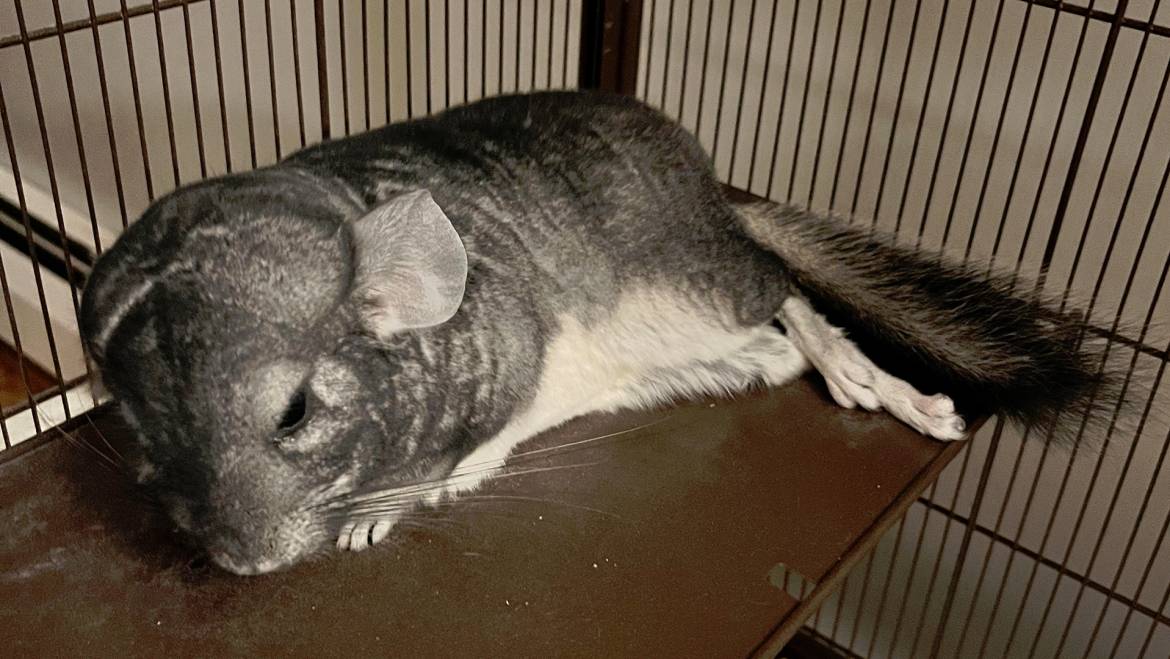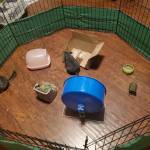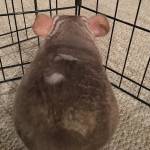Digestion is an essential process that allows the body to convert food into energy and nutrients that sustain life. When it comes to chinchillas, a proper diet is crucial for maintaining their health, as they have a delicate digestive system that can be easily upset. If your chinchilla is experiencing digestive issues, it’s essential to address the problem promptly to avoid serious health problems. In this article, we will discuss the most common digestive issues that chinchillas face and how to help them heal.
Understanding Chinchilla Digestion
To help your chinchilla, you need to understand how their digestive system works. Chinchillas are herbivores and require a diet that is high in fiber. Their digestive process starts in the mouth, where food is mixed with saliva, and then travels through the esophagus and into the stomach. After the stomach, the food enters the small intestine, where nutrients are absorbed, and finally, the remaining undigested food enters the large intestine and is expelled as waste.
Causes of Digestive Problems in Chinchillas
Chinchillas have a unique digestive system that requires a specific diet, a consistent feeding schedule, and plenty of hay and fresh water. Any deviation from this can cause digestive problems in chinchillas. Some of the common causes of digestive problems in chinchillas include:
- Poor Diet: Chinchillas are herbivores and require a high-fiber diet. Feeding chinchillas with sugary, fatty, or processed foods can lead to digestive problems.
- Dehydration: Chinchillas need plenty of fresh water to help them digest their food properly. Lack of water can cause constipation, impaction, and other digestive issues.
- Overfeeding: Overfeeding chinchillas can lead to obesity, which can cause digestive problems.
- Lack of Exercise: Chinchillas are active animals and require plenty of exercise to keep their digestive system healthy. A lack of exercise can lead to constipation and other digestive problems.
- Dental Problems: Dental problems can cause digestive problems in chinchillas. Malocclusion, or misalignment of the teeth, can cause the chinchilla to have difficulty eating and digesting its food.
- Bacterial Infections: Bacterial infections can cause diarrhea and other digestive problems in chinchillas.
Common Digestive Issues in Chinchillas
The most common digestive issues in chinchillas are dental problems, gastrointestinal stasis, and diarrhea. Dental issues can arise due to overgrown teeth, abscesses, and malocclusion. Gastrointestinal stasis occurs when the digestive system slows or stops altogether, which can be caused by a lack of fiber in the diet. Diarrhea is caused by a sudden change in diet, bacterial infections, or parasites.
Some of the most common digestive problems in chinchillas include:
- Constipation: Constipation occurs when a chinchilla is unable to pass stool. This can be caused by a lack of fiber, dehydration, or lack of exercise.
- Diarrhea: Diarrhea is a common digestive problem in chinchillas and can be caused by bacterial infections, poor diet, or stress.
- Bloat: Bloat is a condition that occurs when a chinchilla’s stomach becomes distended due to gas buildup. This can be caused by overfeeding, stress, or a blockage in the digestive system.
- Impaction: Impaction occurs when a chinchilla is unable to pass stool due to a blockage in the digestive system. This can be caused by a lack of fiber, dehydration, or overfeeding.
- Stomach Ulcers: Stomach ulcers can be caused by stress, poor diet, or bacterial infections. They can cause abdominal pain, vomiting, and weight loss.
Symptoms of Digestive Problems in Chinchillas
The symptoms of digestive problems in chinchillas can vary depending on the specific problem. However, some of the most common symptoms include:
- Loss of appetite
- Weight loss
- Abdominal pain
- Bloating
- Diarrhea
- Constipation
- Blood in the stool
- Lethargy
- Dehydration
Treatment of Digestive Problems in Chinchillas
The treatment of digestive problems in chinchillas depends on the specific problem. However, some common treatments include:
- Diet Modification: Switching to a high-fiber diet can help prevent and treat digestive problems in chinchillas. Additionally, feeding chinchillas smaller, more frequent meals and providing plenty of fresh water can also be beneficial.
- Exercise: Encouraging chinchillas to exercise can help prevent and treat digestive problems. Providing plenty of toys and opportunities to climb, run, and play can help keep them active and healthy.
- Medications: Depending on the specific digestive problem, medications such as antibiotics, antacids, and laxatives may be prescribed by a veterinarian.
- Surgery: In some cases, surgery may be necessary to remove blockages or correct dental problems that are causing digestive issues.
It is important to note that chinchillas have a sensitive digestive system, and self-medicating or using home remedies can be dangerous. It is always best to consult with a veterinarian if you suspect your chinchilla is experiencing digestive problems.
Prevention of Digestive Problems in Chinchillas
Prevention is always better than cure. Here are some tips for preventing digestive problems in chinchillas:
- Feed a High-Fiber Diet: Chinchillas require a high-fiber diet to maintain a healthy digestive system. Feed them plenty of hay and avoid sugary, fatty, or processed foods.
- Provide Fresh Water: Chinchillas need access to fresh water at all times to help them digest their food properly.
- Encourage Exercise: Chinchillas are active animals and require plenty of exercise to keep their digestive system healthy. Provide plenty of toys and opportunities to climb, run, and play.
- Maintain Dental Health: Regularly check your chinchilla’s teeth for malocclusion or other dental problems. Providing chew toys and feeding hay can help keep their teeth healthy.
- Avoid Stress: Chinchillas are sensitive animals that can become stressed easily. Avoid loud noises, sudden movements, and other stressors that can disrupt their digestive system.
Digestive problems can be serious health issues for chinchillas. Understanding the causes, symptoms, treatments, and prevention measures can help keep your chinchilla healthy and happy. If you suspect your chinchilla is experiencing digestive problems, it is important to seek veterinary care immediately. With proper care and attention, chinchillas can enjoy a long and healthy life.







